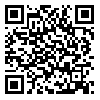Thu, Jul 17, 2025
| فارسی
Volume 20, Issue 1 (Spring 2018)
Advances in Cognitive Sciences 2018, 20(1): 19-31 |
Back to browse issues page
Download citation:
BibTeX | RIS | EndNote | Medlars | ProCite | Reference Manager | RefWorks
Send citation to:



BibTeX | RIS | EndNote | Medlars | ProCite | Reference Manager | RefWorks
Send citation to:
Behbahanian S, Moradi A, Khosroabadi R, Negati V. Effects of wi-Fi wave exposure on human working memory. Advances in Cognitive Sciences 2018; 20 (1) :19-31
URL: http://icssjournal.ir/article-1-739-en.html
URL: http://icssjournal.ir/article-1-739-en.html
1- PhD student in cognitive neuroscience, Institute for cognitive science studies
2- Professor in clinical psychology, Department of psychology, University of Kharazmi
3- Assistant Professor, Institute of cognitive and brain science, University of Shahid Beheshti
4- Associated professor, Institute of cognitive and brain science, University of Shahid Beheshti
2- Professor in clinical psychology, Department of psychology, University of Kharazmi
3- Assistant Professor, Institute of cognitive and brain science, University of Shahid Beheshti
4- Associated professor, Institute of cognitive and brain science, University of Shahid Beheshti
Abstract: (4018 Views)
Introduction: The possibility that electromagnetic waves affect human cognition arises from the fact that electromagnetic radiation induces magnetic and electrical fields which may affect brain electrical activity and membrane potential of nervous system. The purpose of this study was to investigate the effects of electromagnetic radiation on the working memory of humans. Method: A sample of 24 male students from Shahid Beheshti University (mean age 26.5 ± 2.7 years) were selected for this study and randomly divided into two groups: sham exposed and experimental. To evaluate the psychological condition of participants, the SCL90-R questionnaire was used. The experimental group was exposed to electromagnetic wave at 2450 MHZ frequency for 20 minutes.. The head specific absorption rate (SAR) was estimated to be 0.15 W/kg. . The participants’ working memories were assessed at threestages of before, after and 24 hours following exposure using n-back task. In case the reaction time was more than 1,000 mili-seconds or accuracy rate less than 70%, the data was excluded from further analysis. An analysis of ANOVA with repeated measure was used to analyze the data. Results: A significant decrease in reaction time was observed in the experimental group after exposure as compared to the sham group, but the accuracy rate was not changed significantly. Conclusion: According to the findings of present study, it can be concluded that electromagnetic wave exposure in 2450 MHZ frequency may induce transient effect on working memory in healthy humans by curbing the reaction time.
Type of Study: Research |
Subject:
Special
Received: 2017/07/2 | Accepted: 2017/09/27 | Published: 2018/05/8
Received: 2017/07/2 | Accepted: 2017/09/27 | Published: 2018/05/8
Send email to the article author
| Rights and permissions | |
 |
This work is licensed under a Creative Commons Attribution-NonCommercial 4.0 International License. |



